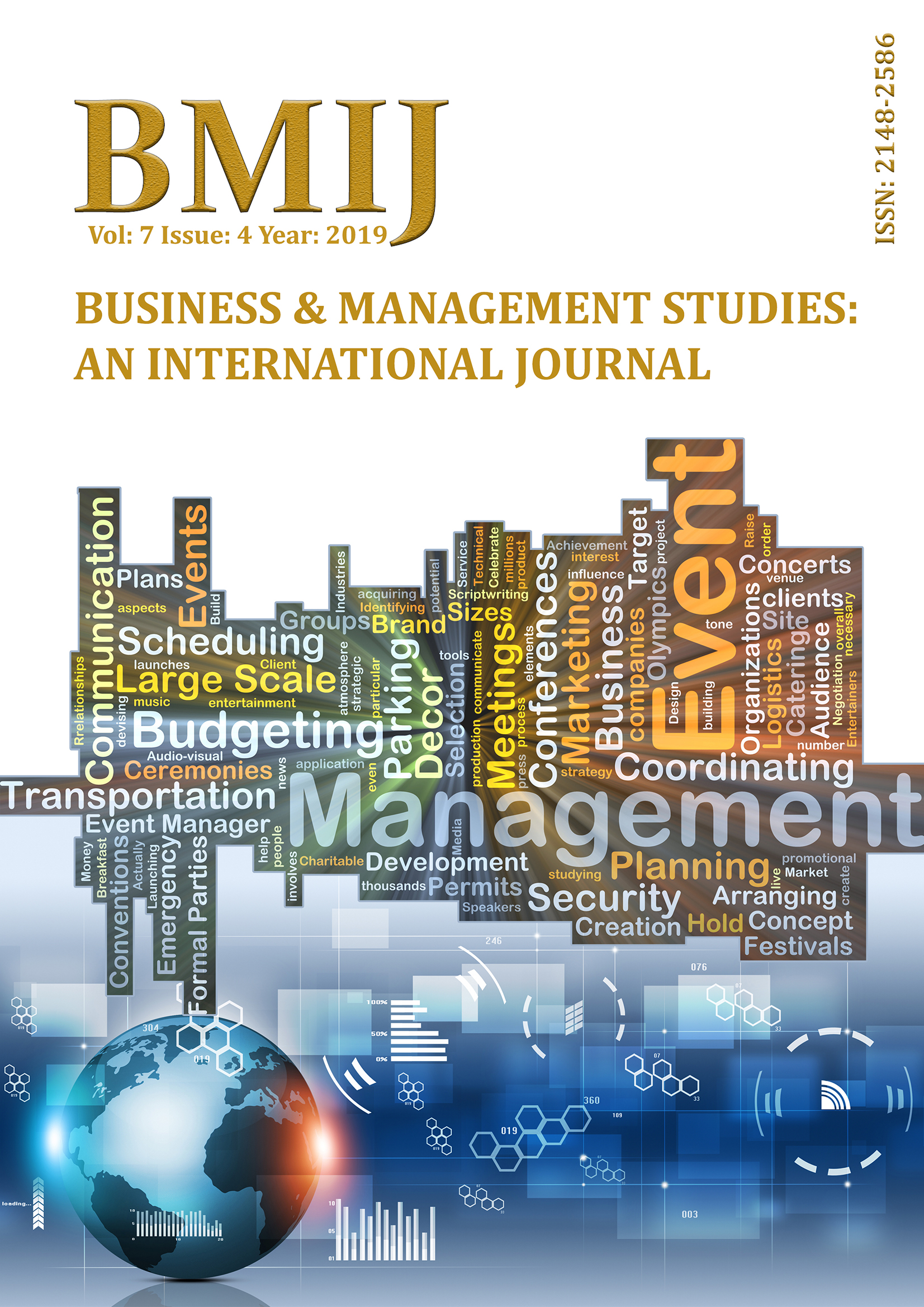
Business & Management Studies: An International Journal
Yazarlar: Arif DAMAR, Rıfat İRAZ
Konular:-
Anahtar Kelimeler:Entelektüel Sermaye,Rekabet Avantajı,KOBİ'ler Intellectual Capital,Competitive Advantage,SMEs
Özet: LITERATURE RESEARCH SUBJECT Knowledge is an essential element that directly affects the activities of organisations, facilitates organisations to follow new markets and technological trends and enables the development of innovative culture in enterprises (Eskiler et al., 2011: 40). Therefore, intellectual capital plays a vital role in creating and maintaining a competitive advantage for researchers in the field of strategic management (Kong and Prior, 2008: 119). Besides, in line with the future vision of the enterprises, the intellectual capital that adds value to the enterprises (Rastogi, 2003: 230) is seen as the most valuable asset and the most potent competitive weapon in the business world (Wang and Chang, 2005: 222) Intellectual capital which is the antecedent of the performance and competitive advantage (Nzewi et al., 2019: 29), is one of the primary resources that provide national and global growth and profitability(F‐Jardón and Martos, 2009: 600; Yaseen et al., 2016: 169). However, intellectual capital is a more critical source of competitive advantage in small and medium-sized enterprises compared to large companies. Because SMEs have fewer financial resources, in competing with their competitors through intangible resources (Jardon and Martos, 2012: 463). It is noteworthy that various studies have been conducted in different countries (such as India, Taiwan, Uganda, Jordan, etc.) to determine the effects of intellectual capital on competitive advantage (Chahal and Bakshi, 2015; Chen, 2008; Kamukama and Sulait, 2017; Malkawi et al., 2018; Yaseen et al., 2016). These studies have been conducted on newly created firms (Hormiga et al., 2011), small and medium-sized enterprises (Chen, 2008), private and public banks (Chahal and Bakshi, 2015), microfinance enterprises (Kamukama et al., 2011; Kamukama and Sulait, 2017), telecommunications (Yaseen et al., 2016), and pharmaceutical companies (Malkawi et al., 2018), and each study concluded that intellectual capital has positive effect on competitive advantage. RESEARCH PURPOSE AND IMPORTANCE This study aims to examine the effect of intellectual capital levels of enterprises with 10-249 employees (SMEs) on competitive advantage and to investigate the language equivalent and the validity and reliability of the level of intellectual capital and competitive advantages of SMEs in Turkey. CONTRIBUTION of the ARTICLE to the LITERATURE It is expected that examining the effect of intellectual capital on competitive advantage in SMEs and adapting the scales of intellectual capital and competitive advantage into Turkish will contribute to the literature. DESIGN AND METHOD RESEARCH TYPE This article is a research article. RESEARCH QUESTION The research question was determined as "Do the intellectual capital levels of SMEs affect their competitive advantage?". DATA COLLECTION METHOD In this study, which is empirical research, survey technique was used as the data collection tool. Employees working as managers at SMEs in Turkey constitute the sample of the study. In this context, data were obtained from 130 participants determined by convenience sampling method. QUANTITATIVE / QUALITATIVE ANALYSIS In this study, descriptive statistics, independent groups t-test, explanatory and confirmatory factor and path analyses were used. RESEARCH HYPOTHESES This research hypothesis was determined as follows; H1: Intellectual capital has a positive effect on competitive advantage. H1a: Human capital has a positive effect on competitive advantage. H1b: Social capital has a positive effect on competitive advantage. H1c: Organisational capital has a positive effect on competitive advantage. FINDINGS AND DISCUSSION According to the results of analysis; intellectual capital has a statistically significant positive effect on competitive advantage (r= 0,675, p <0.000). Human capital and organisational capital positively affect competitive advantage, but social capital has not been determined to have a significant effect on competitive advantage. In this context, H1a and H1c hypotheses were accepted. Also, in the literature, it was determined that human capital, social capital and organisational capital, which are sub-dimensions of intellectual capital, have a positive effect on competitive advantage (Chahal and Bakshi, 2015; Chen, 2008; Kamukama and Sulait, 2017; Malkawi et al., 2018; Taie, 2014). However, Yaseen et al.(2016) have found a positive effect of social capital and organisational capital on competitive advantage. Hormiga et al.(2011) found positive effects of human capital and social capital on competitive advantage in their study. CONCLUSION, RECOMMENDATION AND LIMITATIONS It was determined that Intellectual Capital Scale and Competitive Advantage Scale are valid and reliable measurement tools that can be used in different methods and applications in Turkey. Besides, intellectual capital has a statistically significant and positive effect on the competitive advantage of SMEs. The main limitation of this study is that the convenience sampling method was preferred during the sampling process, and the data were collected using both face-to-face and online questionnaires from SMEs. In this context, expanding the field of activity of SMEs in future studies and including the foreign sample in the research will make the research findings more significant. Besides, examining the subject with different variables will contribute to the field and practitioners.